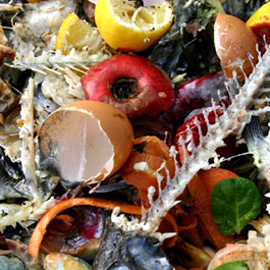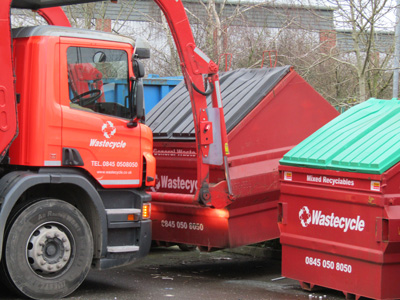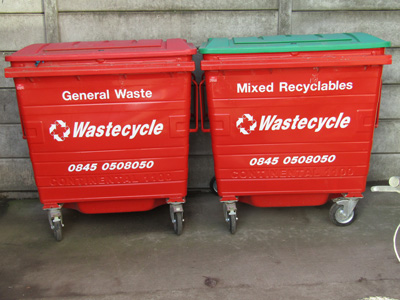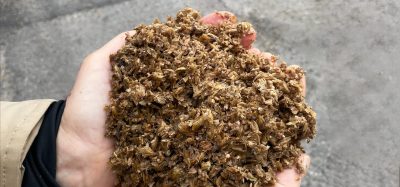Combatting food waste with effective waste management
- Like
- Digg
- Del
- Tumblr
- VKontakte
- Buffer
- Love This
- Odnoklassniki
- Meneame
- Blogger
- Amazon
- Yahoo Mail
- Gmail
- AOL
- Newsvine
- HackerNews
- Evernote
- MySpace
- Mail.ru
- Viadeo
- Line
- Comments
- Yummly
- SMS
- Viber
- Telegram
- Subscribe
- Skype
- Facebook Messenger
- Kakao
- LiveJournal
- Yammer
- Edgar
- Fintel
- Mix
- Instapaper
- Copy Link
Posted: 29 February 2016 | Paul Needham, Managing Director, Wastecycle | No comments yet
Here, Paul Needham, Managing Director for Wastecycle, discusses how food manufacturers and retailers can combat food waste by better managing the waste being produced…


Food waste is a major issue throughout the UK, highlighted by campaigns from the government’s waste advisory body, Waste and Resources Action Programme (WRAP), along with the Global Commission on the Economy & Climate. Recent findings show that one-third of all food produced in the world ends up as waste, valuing more than £259 billion per year. However, it’s not just consumers who need to reduce and combat food waste – manufacturers and retailers must, too.


According to WRAP, over 4.1 million tonnes of food is wasted each year by the food industry, equating to nearly 200,000 tonnes of C02 being produced. Combatting food waste isn’t just about reducing the amount being created, though; it’s also about properly managing the waste that is unavoidable.
But how can the food industry boost the effectiveness of its waste management?
Implement A Waste Hierarchy
The waste hierarchy is an internationally recognised framework for managing and reducing waste by using these five simple steps in this set order: prevention, reuse, recycle, recovery and disposal.
Essentially, this hierarchy encourages businesses to think of their waste as a resource so they begin asking themselves ‘how can we prevent waste from our supply chain?’ and ‘What other purposes could the waste we can’t avoid serve?’
For example, Wastecycle is currently working with Quorn Food and have identified that, since their food waste contains no animal by-products and is high in nutritional value, it can be segregated and processed for use as high-quality animal feed. Wastecycle will also be converting the 75,000 litres of used cooking oil that Quorn produces each year into an environmentally friendly bio liquid that can be used to generate carbon neutral electricity for the UK.
For companies wanting to implement the waste hierarchy themselves, it’s important that time is spent communicating their commitment to reducing waste to all staff as a way of working towards creating a recycling culture. This can be done in a number of ways, for example through the use of workshops, training sessions and literature – all things an experienced waste management company can help provide.
Find sustainable markets for reuse and recycling opportunities
Using the knowledge and expertise of a waste management company, food manufacturers can ensure their waste is diverted from landfill in a few ways.
The volume of materials they receive means leading waste management providers are able to work on their customers’ behalf to secure markets for dry-mixed recycling, such as paper, plastic and metal, to be manufactured into new products.


Ideally, the waste company you choose should be able to use new and innovative methods to divert the maximum amount of waste from landfill by extracting all possible commodities out before looking at other ways of recovering excess materials to avoid landfill – for example creating fuels which act as a replacement to fossil fuels.
Increase the segregation of dry mixed recycling (DMR)
Although segregation won’t reduce the amount of waste a manufacturer or retailer produces, implementing a recycling culture encourages the proactive reduction and efficient management of waste.
The most important factor when implementing a segregation plan for DMR, such as cardboard, and plastics, is to make sure all employees know and understand the process so the correct items are put into the correct bins. Making recycling easy is key, but is something that can be done by simply choosing convenient bin locations and ensuring it’s clear which waste goes into which bin.
When it comes to segregation, an important tip to remember is that keeping food waste out of the waste stream is absolutely essential, as any recycling load that is contaminated can become unsuitable for recycling, therefore negatively impacting the environment.
Make A Difference
Combatting food waste is vital to the sustainability and well being of the planet. By both cutting back on the amount of waste created and the amount of waste sent to landfills, food companies can have a truly positive impact on the environment, while also earning credibility for being ‘green’ in the eyes of current or potential customers. But waste management isn’t easy, which is why it’s extremely important to find a waste management company with the experience and dedication needed to help make a difference.
|
Biography
With over 20 years in the industry, Paul has helped Wastecycle grow from five employees to over 275 staff, serving thousands of clients across the East Midlands from sites in both Nottingham and Leicester. Wastecycle has earned numerous health and safety awards and accreditations, including ISO 18001 and ROSPA Gold. |









